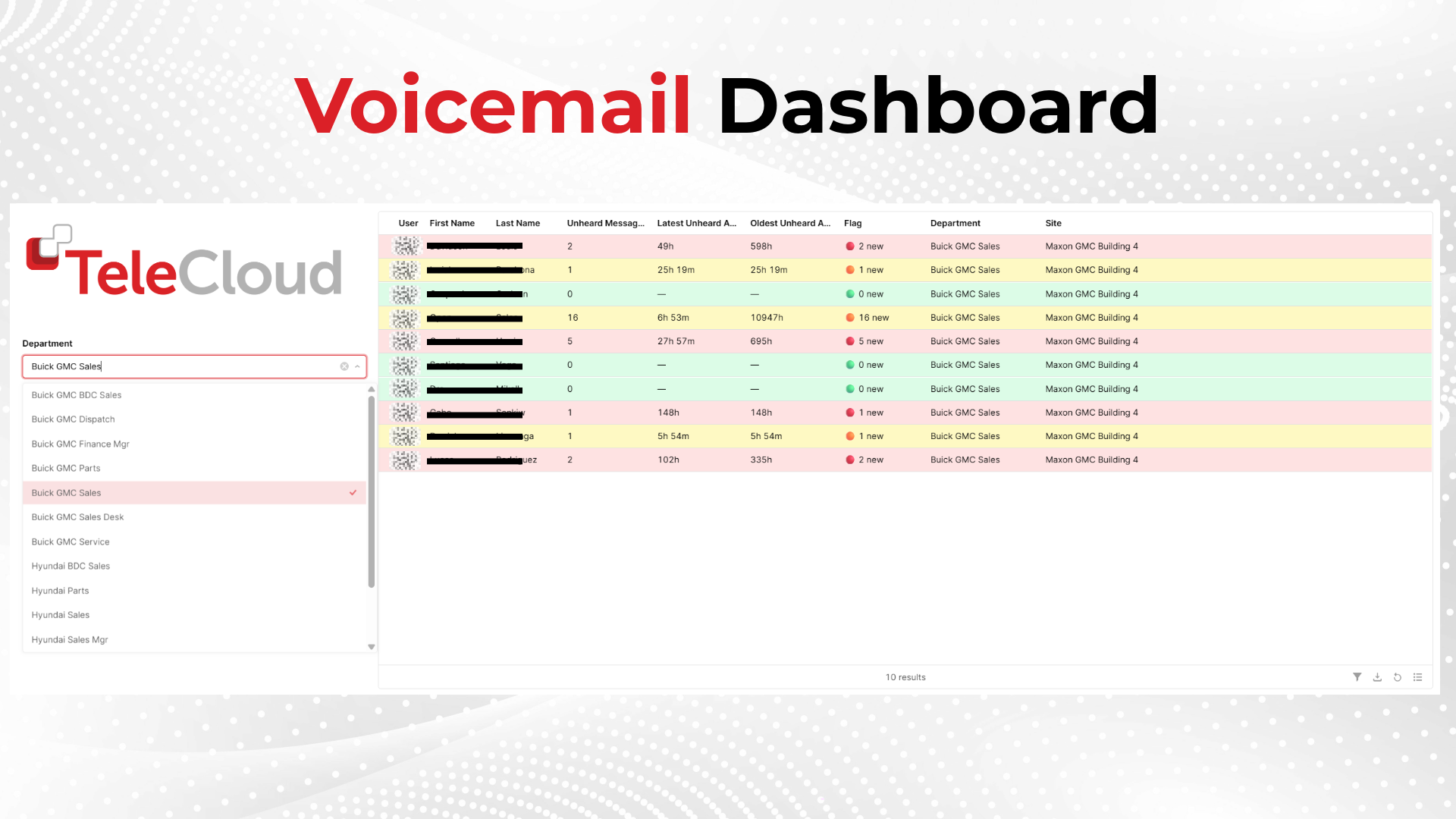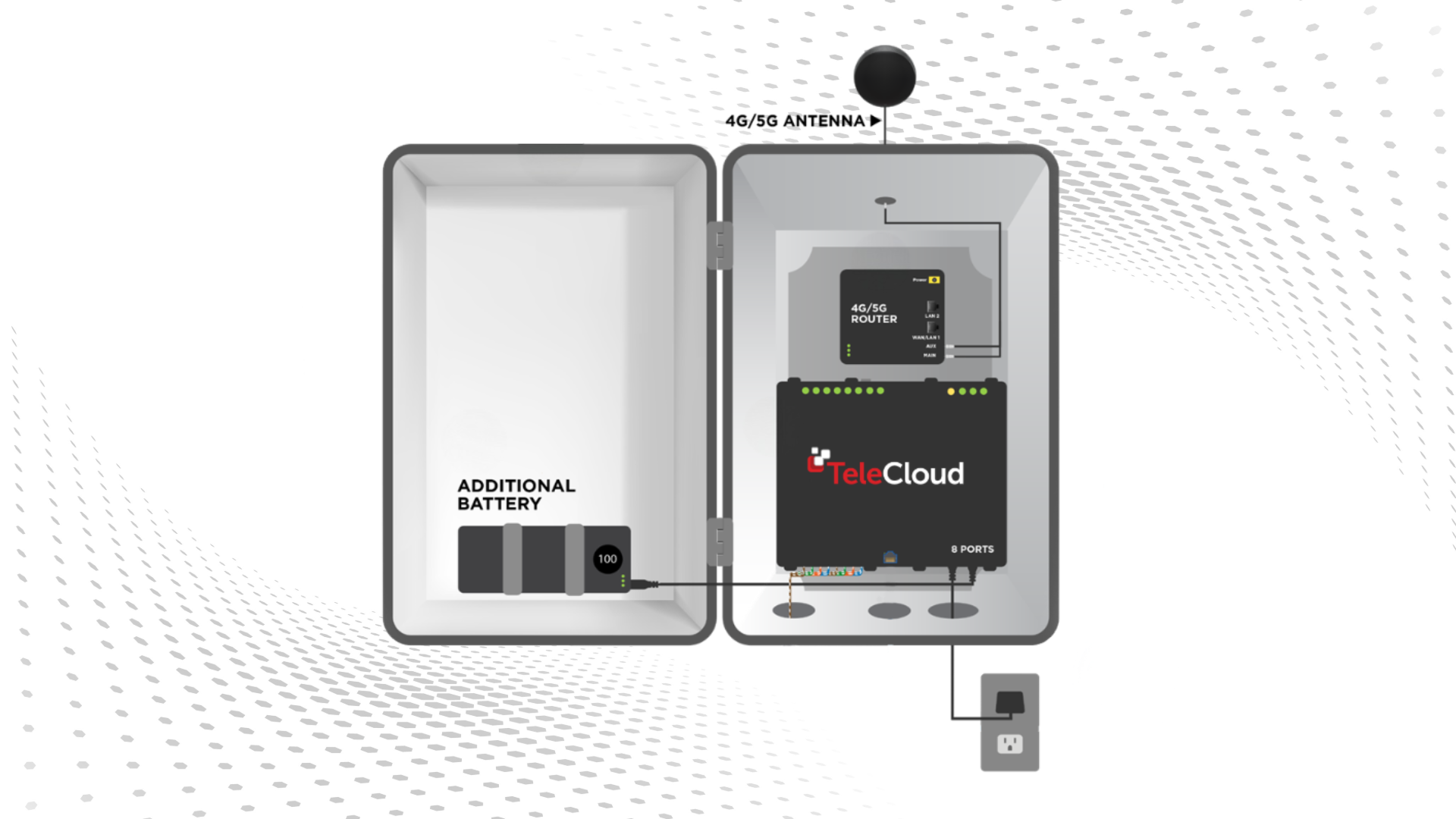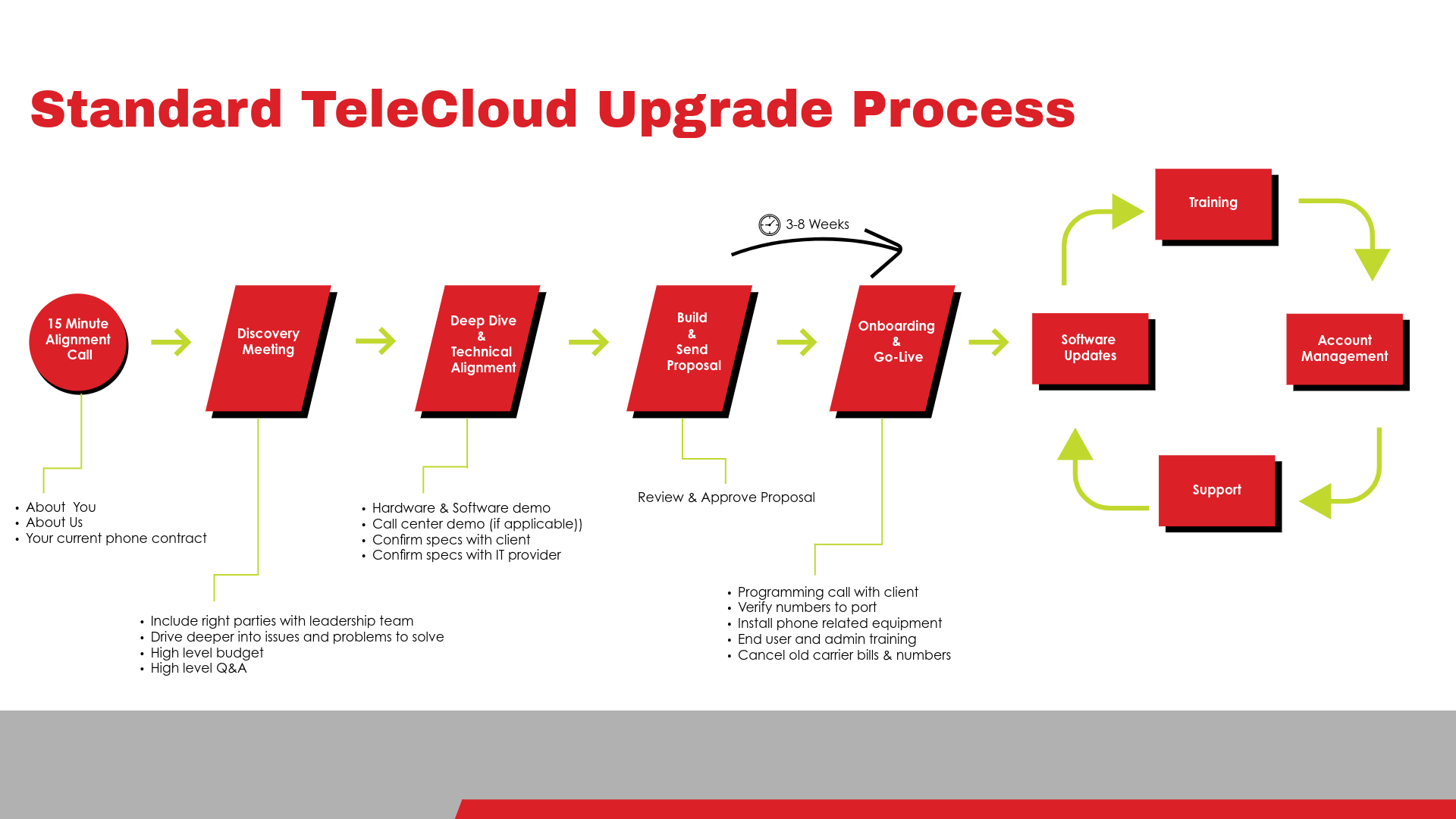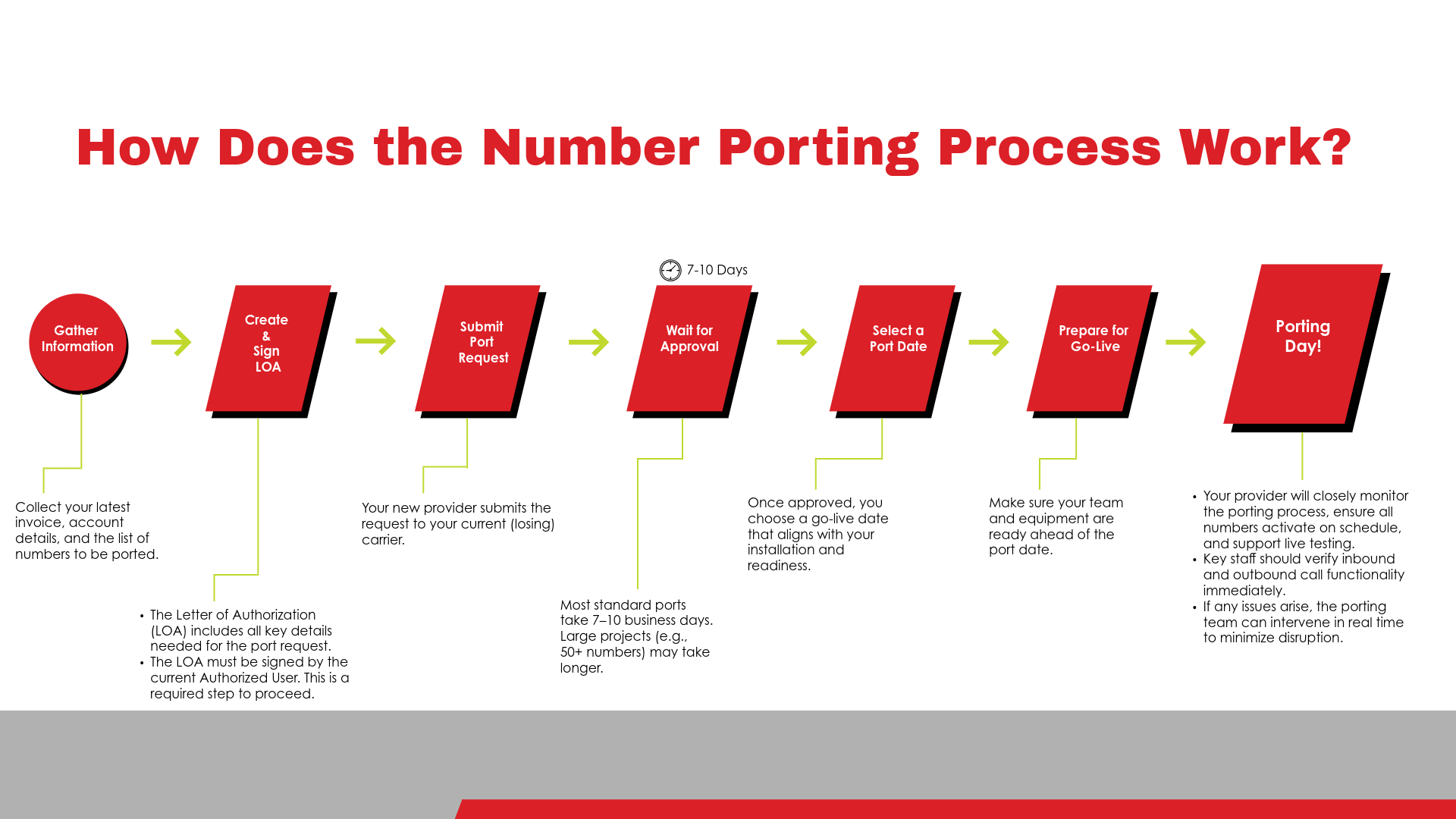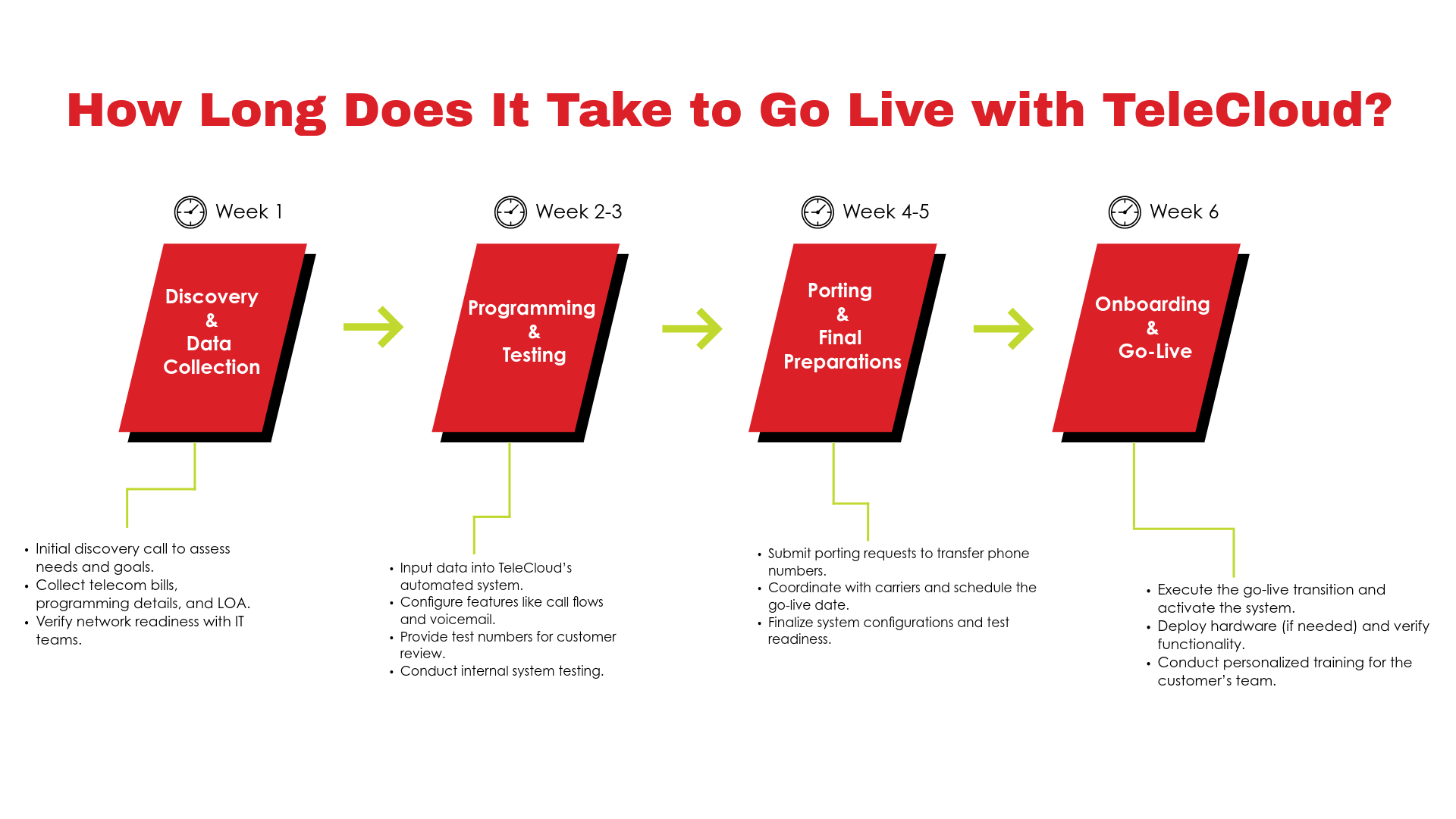
Most businesses default to a 90-day retention period for call recordings and voicemails, but that’s often a starting point, not a strategy. The right retention policy depends on your industry’s compliance standards, your team’s call volume, and how you plan to use that data. For organizations embracing AI, years of stored conversations could be the most valuable training material they own.
If you’ve ever wondered whether your old call recordings are just taking up space or hiding untapped value, you're not alone. Many companies set their deletion rules years ago and haven’t revisited them since.
At TeleCloud, we work with businesses ranging from healthcare to enterprise sales, helping them transform legacy communication data into fuel for automation, coaching, and decision-making. We’ve seen firsthand how long-term call retention can move from a storage problem to a competitive advantage.
This guide will help you decide how long to keep your recordings based on value, not just volume.
Table of Contents
- Why Should I Save My Call Recordings?
- How Long Do UCaaS Platforms Typically Store Call Recordings?
- What Are the Tradeoffs of Longer Call Recording Storage?
- How Are Leading Companies Using Long-Term Call Data?
- What Should Determine My Retention Policy?
- Should I Delete Old Call Recordings at All?
- Frequently Asked Questions
Why Should I Save My Call Recordings?
Call recordings and voicemails are often treated like temporary utilities, useful for quick reference or dispute resolution, then discarded. But with the rise of AI, they’re quickly becoming some of your company’s most valuable data assets.
Every customer interaction holds insight. When stored and structured properly, your call history becomes a foundation for training AI models, analyzing performance, flagging issues, and automating insights. Deleting it too early could mean losing years of irreplaceable context about your business.
How Long Do UCaaS Platforms Typically Store Call Recordings?
In today’s UCaaS environments, the default retention period for call recordings and voicemails is typically 90 days. This approach emerged from the technical limitations of multi-tenant platforms, where multiple customers share server space, and storage is finite.
To manage that, providers set default timeframes to avoid exceeding capacity. Many offer the option to purchase extended storage, usually in 30, 60, or 90-day increments. For customers with larger teams or compliance needs, additional solutions like exporting recordings to FTP or Amazon S3 are available.
What Are the Tradeoffs of Longer Call Recording Storage?
Keeping your recordings for longer than 90 days has both upsides and logistical considerations.
Benefits:
- AI Training and Insights: Long-term call data can be exported into AI tools, enabling better training for agentic AI and sentiment analysis.
- Historical Reference: Sales leaders can track rep performance over years, not weeks.
- Coaching and Quality Control: You gain visibility into what actually happened on calls, even months or years later.
Challenges:
- Increased Storage Costs: Extended storage isn’t free, and large call volumes can add up quickly.
- Export and Management: Offloading data to cloud storage or external servers takes planning.
- Data Retention Policies: Without a strategy, you may end up keeping too much or exposing yourself to unnecessary compliance risks.
How Are Leading Companies Using Long-Term Call Data?
Take Prompt Care, one of TeleCloud’s biggest and long-standing customers. They’ve been recording calls since 2018 without a fixed deletion policy. During a recent conversation with their CTO, the topic of AI came up, specifically the value of using those historical recordings to feed an AI model.
The idea was simple but powerful: export everything into the AI before applying any deletion rules. Those seven years of customer-specific data? Incredibly valuable. Suddenly, calls that once sat idle on a server became training material for smarter bots, better dashboards, and future-ready automation.
For large organizations with hundreds of users and no time to manually review calls, this changes the game. Instead of spot-checking, the AI can identify patterns, surface red flags, and even explain why certain agents underperform based on years of data.
What Should Determine My Retention Policy?
Not every business needs to keep recordings forever, but you should have a plan based on your:
- Compliance Requirements: Industries like healthcare, finance, and legal may have mandatory retention windows.
- Team Size and Call Volume: Larger orgs with multiple business units create more data and have more to gain.
- AI Goals: If you’re planning to use tools like agentic AI or an insights dashboard, historical data is critical.
- Storage Strategy: Can you afford to retain everything on-platform? Or do you need to offload to cloud storage?
Who Should Keep Recordings Longer?
|
Business Type |
Reason to Retain Longer |
Recommended Strategy |
|
Healthcare Providers |
HIPAA compliance, appointment tracking |
Retain 1–7 years, archive securely |
|
Legal & Financial Services |
Regulatory evidence, dispute resolution |
Match retention to regulation, consider encrypted cloud storage |
|
Sales Teams with High Call Volume |
Performance coaching, historical insight |
Store for 6–12 months minimum, integrate with AI tools |
|
Contact Centers |
Quality assurance, trend detection |
Use automated insights, archive long-term in the cloud |
|
AI-Adopting Organizations |
Data training, customer behavior modeling |
Retain all structured data where feasible |
Should I Delete Old Call Recordings at All?
This is the new question teams are starting to ask. The traditional model was to retain only what you need for compliance or immediate operational use. But with AI capabilities expanding, old call data becomes future-proof.
If you’ve been on a platform like TeleCloud for years, your AI tools could already be learning from everything said on every call. That history becomes the foundation for automation, coaching, and prediction.
So, should you delete it? Not without considering what you're giving up.
Don’t Just Store Your Data… Use It
Call recordings are no longer throwaway artifacts. They’re one of the richest sources of insight you already own. Before applying blanket deletion rules, consider how you could use that data to:
- Train your AI tools more effectively
- Improve agent coaching and performance tracking
- Surface actionable insights through dashboards
Retention isn’t just about storage. It’s about strategy.
If you’re sitting on years of calls, don’t waste them. You might already have everything you need to build smarter workflows, train better bots, and understand your customers in ways you never thought possible.
Need help figuring out your call recording strategy? Let’s talk.
Frequently Asked Questions
Can I keep recordings longer than 90 days without violating compliance rules?
It depends on your industry. Some regulations may require a minimum or maximum retention period. Always align your storage with those legal guidelines.
Is old call data really useful for AI?
Yes. Historical recordings help train AI to recognize patterns, improve performance predictions, and power tools like agentic assistants and analytics dashboards.
What if we don’t have the infrastructure to store years of recordings?
You can export recordings to external storage solutions like Amazon S3 or FTP, reducing costs while preserving valuable data.
Do I need to keep every single recording?
Not necessarily. But having a clear strategy based on use case, department, or agent is more effective than a blanket deletion policy.
What’s the first step to getting started?
Audit your current retention settings, define your goals for call data (compliance, coaching, AI), and talk to your UCaaS provider about storage and export options.
Topics:





